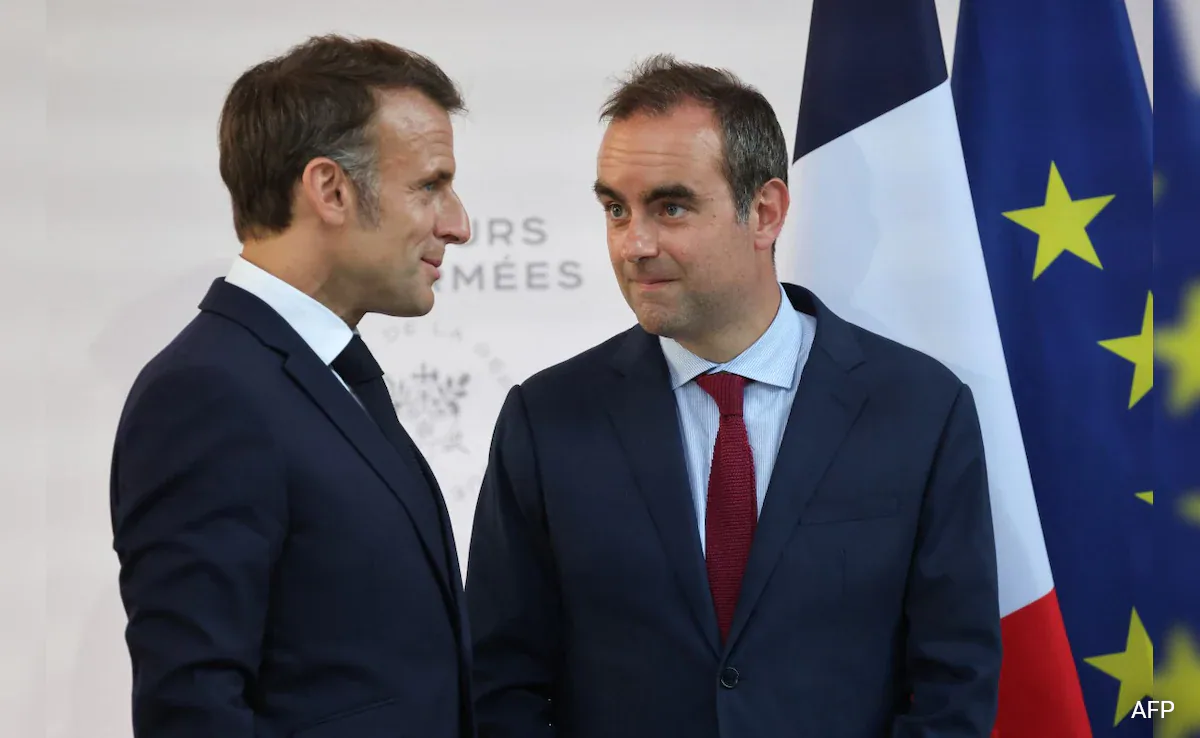
IndependentReport – On September 9, 2025, French President Emmanuel Macron appointed Sébastien Lecornu as france new Prime Minister. At just 39 years old, Lecornu is among the youngest leaders to assume the role in modern French history. His promotion follows the fall of François Bayrou’s government after losing a no-confidence vote in parliament, marking the fifth prime minister in only two years.
The appointment came at a critical juncture. Lecornu, previously serving as Defense Minister, inherits the difficult task of restoring stability in a nation deeply divided over austerity measures, economic reforms, and the direction of Macron’s presidency. He has only a short window to present the draft of the 2026 budget by early October, a deadline that will test his ability to build consensus in a fragmented parliament.
Lecornu’s first day in office coincided with the escalation of a movement known as “Block Everything.” Protesters took to the streets across France, voicing frustration over government cutbacks and the broader economic situation. Roads were blocked, garbage set ablaze, and public infrastructure was disrupted, reflecting the depth of anger felt by large parts of the population.
Authorities deployed nearly 80,000 police officers to contain the unrest. In cities like Rennes, violence escalated with buses torched and clashes between demonstrators and police units. Nationwide, more than 200 arrests were reported, underscoring the scale of civil disobedience. For Lecornu, these events highlighted the immediate challenge of governing a country where trust in political institutions is increasingly fragile.
Key features of the protests include:
Also Read : Nepal Lifts Social Media Ban Amid Youth-Led Anti-Corruption Unrest
Beyond the protests in the streets, Lecornu faces another formidable challenge inside parliament. French lawmakers remain divided into competing ideological camps, making consensus on fiscal and economic reforms hard to achieve. While most agree that France’s budget deficit of 5.8% of GDP must be reduced, the methods for achieving this remain sharply contested.
Left-wing parties argue that cuts to social programs will deepen inequality, and many have threatened to launch another no-confidence motion. Meanwhile, Marine Le Pen’s far-right National Rally (RN) has hinted at conditional support for the government’s proposed budget, though their backing would come with strong demands of their own. This places Lecornu in a delicate balancing act, attempting to craft alliances without alienating either side of the political spectrum.
The fractured parliament means:
Perhaps the most immediate challenge is the looming deadline for the 2026 budget draft. Lecornu must submit a plan by October 7, or at the latest by October 13, to ensure parliamentary approval before the end of the fiscal year. The tight timeline leaves little room for negotiation and amplifies pressure on the france new prime minister to demonstrate leadership quickly.
Crafting the budget will not only be a technical exercise but also a symbolic one. It will signal whether Lecornu can balance the need for fiscal discipline with the demands of a population weary of economic stagnation. His ability to present a plan that appeases both parliament and the public will likely determine the survival of his government.
Policy priorities under Lecornu are expected to focus on:
The appointment of Sébastien Lecornu is both a gamble and an opportunity for Emmanuel Macron. On one hand, Lecornu is seen as a loyal ally with experience navigating sensitive defense and security matters. On the other, his lack of economic leadership experience raises doubts about his capacity to manage the financial challenges awaiting him.
The wave of protests shows no sign of subsiding, and political divisions in parliament threaten to undermine progress on crucial reforms. Lecornu must walk a fine line assertive enough to maintain control, yet conciliatory enough to bring diverse factions together. His success or failure will not only shape the final years of Macron’s presidency but also set the tone for France’s political trajectory heading into the next election cycle.
Article About France New Prime Minister Written by: Lukman Azhari | Editor: Micheal Halim
Information Source: Reuters